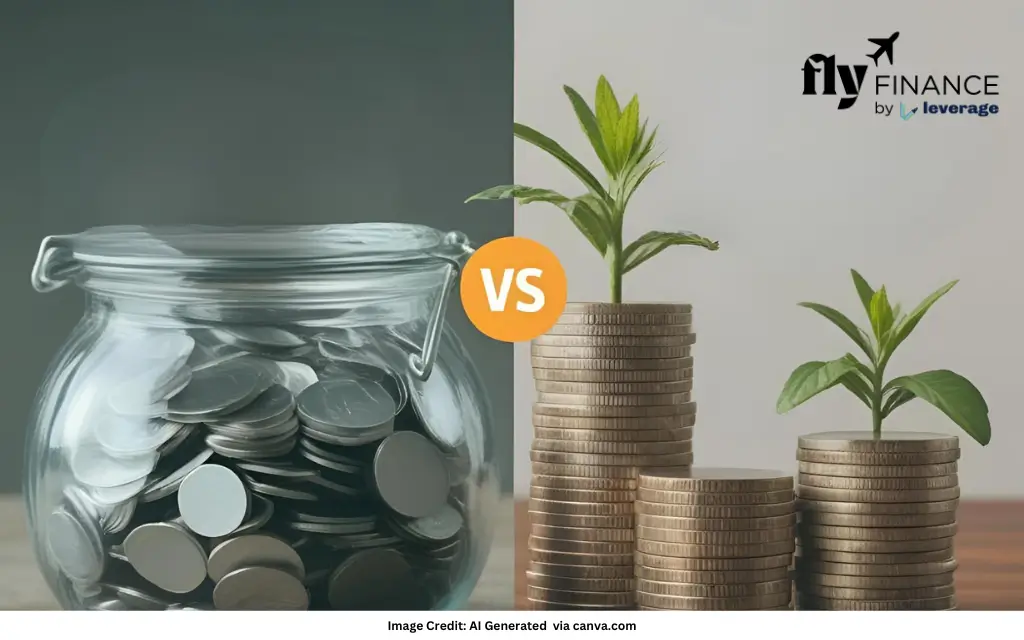Studying abroad is an exciting opportunity, but financing it often requires careful planning. Choosing between a fixed-rate and variable-rate student loan is a critical decision that impacts your monthly payments and overall loan cost.
This guide compares fixed-rate vs variable-rate student loans, helping international students make informed choices for their financial future. Let’s get started.
Table of contents
- What is the Difference Between Fixed-Rate and Variable-Rate Student Loans?
- Pros and Cons of Fixed-Rate Student Loans
- Pros and Cons of Variable-Rate Student Loans
- Fixed-Rate vs Variable-Rate Student Loan: Which Is Best for Studying Abroad?
- Fixed-Rate vs Variable-Rate Student Loan: Refinancing Options
- Tips to Keep in Mind Before Choosing a Loan Rate
- FAQs on Fixed-Rate vs Variable-Rate
What is the Difference Between Fixed-Rate and Variable-Rate Student Loans?
In India, education loans to study abroad are typically offered by public and private banks, as well as Non-Banking Financial Companies (NBFCs) like Avanse and Credila. Knowing the difference between fixed-rate and variable-rate loans helps in planning repayments effectively.
- Fixed-Rate Student Loans: These loans have a constant interest rate throughout the loan term, ensuring stable monthly payments. They’re ideal for predictable budgeting, especially when dealing with foreign currency expenses.
- Variable-Rate Student Loans: Also known as floating-rate loans in India, these have interest rates tied to benchmarks like the Marginal Cost of Funds-based Lending Rate (MCLR) or Repo Rate. Rates fluctuate with market conditions, affecting monthly payments.
Check out the table given below to know the difference between fixed-rate and variable-rate student loans based on important features of the loan:
| Feature | Fixed-Rate Loan | Variable-Rate Loan |
| Interest Rate | Stays constant throughout the loan term. | Changes periodically based on market conditions. |
| Monthly Payments | Predictable and consistent. | Fluctuates, can increase or decrease over time. |
| Initial Rate | Typically higher than variable rates. | Usually lower than fixed rates initially. |
| Risk of Rate Increase | None – unaffected by market rate changes. | High – payments may rise if market rates increase. |
| Best For | Long-term stability and predictable budgeting. | Short-term repayment flexibility and risk-tolerant borrowers. |
| Ideal Borrower | Those planning to repay loans over a long period. | Those who can repay loans quickly or take financial risks. |
| Impact of Rate Decrease | No benefit – rates stay the same. | Beneficial – payments may decrease. |
| Overall Cost | Higher if market rates decrease. | Lower if rates decrease but higher if they increase. |
Must Read: Benefits Of Education Loans: Features And Advantages Of Why You Should Take An Education Loan!
Pros and Cons of Fixed-Rate Student Loans
Fixed-rate loans are popular among international students for their predictability, especially when managing expenses in a foreign currency. Here are the advantage of fixed rate loans:
Pros of Fixed-Rate Loans
- Stable Payments: Monthly payments remain constant, simplifying budgeting for tuition, housing, and living expenses abroad.
- Protection Against Rate Hikes: Unaffected by rising market rates, offering peace of mind during economic uncertainty.
- Long-Term Affordability: Ideal for loans with extended repayment terms (e.g., 10–20 years), common for international study programs.
Cons of Fixed-Rate Loans
- Higher Initial Rates: Fixed rates are often higher than the starting rates of variable loans, potentially increasing initial costs.
- No Benefit from Rate Drops: If market rates decrease, you won’t see reduced payments or lower interest costs.
Pros and Cons of Variable-Rate Student Loans
Variable-rate loans can be appealing for students comfortable with financial risk and those planning to repay loans quickly.
Pros of Variable-Rate Loans
- Lower Initial Rates: Often start with lower rates than fixed-rate loans, reducing early repayment costs.
- Potential Savings: If market rates remain low or decrease, you could pay less interest over time.
Cons of Variable-Rate Loans
- Unpredictable Payments: Fluctuating rates make budgeting challenging, especially for students with limited income abroad.
- Risk of Rate Increases: Rising market rates can significantly increase monthly payments and total loan costs.
- Limited Protection: While most variable-rate loans have interest rate caps, these caps are often high and may not fully shield borrowers from volatility.
What are Interest Rate Caps?
To make sure the Variable-rate doesn’t increase too much, banks add interest rate caps—these are limits that protect you from a big increase in your loan’s interest rate. There are 3 types of interest rate caps:
- Initial Cap: Limits the rate change at the first adjustment.
- Periodic Cap: Restricts rate changes during each adjustment period (e.g., monthly or quarterly).
- Lifetime Cap: Sets the maximum rate that can be charged over the loan’s life.
Despite these safeguards, caps may not fully protect against significant market shifts, making variable-rate loans riskier in volatile economies.
Interest Rate Mechanisms in India
Variable-rate loans in India are tied to:
- MCLR: A bank-specific benchmark reflecting funding costs, reset periodically (e.g., every 6–12 months).
- Repo Rate: The rate at which RBI lends to banks, influencing MCLR and loan rates. Rate changes are typically applied at reset intervals, as outlined in your loan agreement. Check with lenders like SBI or HDFC for reset frequency and terms.
Fixed-Rate vs Variable-Rate Student Loan: Which Is Best for Studying Abroad?
Choosing the right loan depends on your financial situation, repayment timeline, and risk tolerance.
Who Should Choose a Fixed-Rate Loan?
- Long-Term Borrowers: If you’re financing a multi-year program (e.g., a bachelor’s or master’s degree abroad), fixed-rate loans offer stability over extended repayment periods.
- Risk-Averse Students: Ideal for those who prioritise predictable payments, especially when managing foreign currency fluctuations or high living costs in countries like the UK, Australia, or the US.
- Stable Budgeters: Perfect for students with fixed incomes or limited financial flexibility, ensuring consistent payments regardless of market changes.
Who Should Choose a Variable-Rate Loan?
- Short-Term Borrowers: If you plan to repay your loan quickly (e.g., within 5 years), variable-rate loans may save money due to lower initial rates.
- Risk-Tolerant Students: Suitable for those comfortable with potential payment increases and confident in managing market volatility.
- Market-Savvy Borrowers: If you anticipate stable or declining interest rates (e.g., based on economic forecasts), a variable-rate loan could be cost-effective.
Fixed-Rate vs Variable-Rate Student Loan: Refinancing Options
If your financial needs change, refinancing allows you to switch between fixed and variable rates or adjust loan terms. Private lenders often offer refinancing, but note:
- Fees: Some lenders charge origination fees, though these are rare for student loans.
- Market Timing: Refinancing to a fixed-rate loan may be wise during periods of rising education loan interest rates.
- Federal Loans: Refinancing federal loans into private variable-rate loans means losing benefits like income-driven repayment or loan forgiveness.
Tips to Keep in Mind Before Choosing a Loan Rate
Before deciding between fixed-rate vs variable-rate student loans, there are numerous factors to consider:
- Loan Type: Most Indian education loans for abroad studies are private (banks/NBFCs), as federal schemes like Vidya Lakshmi primarily cover domestic education.
- Repayment Duration: Loans for international studies often have 10–15-year terms. Fixed rates suit longer terms, while variable rates may work for shorter ones.
- Market Conditions: Monitor RBI’s Repo Rate and inflation trends. For example, the Repo Rate rose to 6.5% in 2023–2025, increasing variable-rate costs.
- Rate Reset Frequency: For variable-rate loans, check MCLR reset periods (e.g., 6 months or 1 year) in the loan agreement.
- Risk Tolerance: Fixed rates shift risk to the lender, while variable rates require you to absorb market volatility.
- Currency Exchange Risks: Factor in INR depreciation against currencies like USD or EUR, which can amplify variable-rate EMI fluctuations.
Must Read: Interest Rate Parity: Definition, Calculator, Importance In Education Loan
Deciding between a fixed-rate and variable-rate student loan for studying abroad involves weighing stability against potential savings. Fixed-rate loans, offered by banks like SBI and ICICI, ensure predictable EMIs, suiting long-term repayment and risk-averse borrowers. Variable-rate loans, tied to MCLR or Repo Rate, offer lower initial rates but carry uncertainty, ideal for short-term repayment or market-savvy borrowers.
Finally, we hope that every student will be able to pursue their higher education without financial constraints and have a fantastic experience of studying abroad.
FAQs on Fixed-Rate vs Variable-Rate
Fixed rates provide EMI stability, ideal for long-term loans in volatile markets. Floating rates start lower, good for quick repayment, but risk MCLR hikes. Choose fixed for certainty, floating for short-term savings.
Suppose the financial unpredictability of a variable-rate mortgage does not scare you. In that case, a variable-rate mortgage may be a preferable choice in a low-interest rate environment because the rate is likely to be lower than a fixed-rate mortgage, which can save you a lot of money.
A fixed interest rate eliminates the danger that a mortgage or loan payment will rise dramatically over time. Fixed interest rates are sometimes higher than variable interest rates. Borrowers are more inclined to choose fixed-rate loans when interest rates are low.
Fixed rates offer stable EMIs, ideal for long-term loans and risk-averse borrowers. Variable rates start lower, suiting short-term repayment but risk rising with RBI rates. Choose fixed for predictability, variable for potential savings.
Fixed rates range from 10.5–12% p.a., variable rates from 8.5–10% p.a. Rates vary by lender (e.g., SBI, HDFC) and loan terms. Check with banks for precise quotes.
To learn more about bank accounts for students, the best education loans, forex, banking experience for global students, or international money transfers, reach out to our experts at 1800572126 to help ease your experience with studying abroad.





























